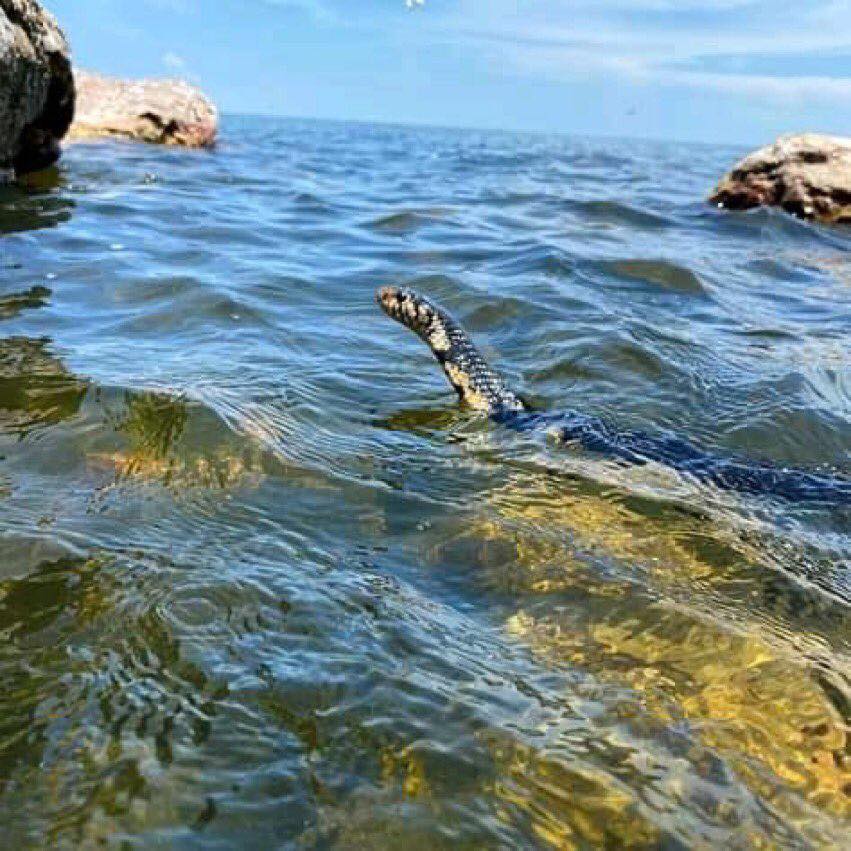MUSAMBWA ISLAND IN AFRICA
MUSAMBWA ISLAND IN AFRICA The six-acre-island is found in east Africa generally Uganda. It is located in the northwestern part of Lake Victoria, the largest lake in East Africa. It is so far the world’s largest in Rakai district which is about 5 km from Kasensero landing site on Lake Victoria.
Musambwa island is occupied by about 100 men who peacefully reside with different types of reptiles mainly snakes that are commonly seen in people’s houses as well as sharing beds.
There are more than 2000 snakes that settle in the island, it’s a ratio of over 20 snakes per person. It’s believed that snakes give good luck to its people. Musambwa residents believe their island is full of spirits which must appear in form of snakes. So in Luganda, Musambwa means spirits.
Boosts molarity rates
Musambwa island boosts one of the highest morality rates in the world given that no one can have sex there or else the spirits will humiliate him/ her and the entire number. This has saved the settlers from the deadly sexually transmitted diseases like AIDS that is common on other islands on the lake.
There are many activities on this lake which include nature walk along the rocky island, bird watching, seeing reptiles, sport fishing and guided water boats and many more. The vegetation on this island is mainly shrubby and stunted trees mainly fichus and the shore lines are rocky.
Besides over 2000 snakes residing on the island, there are reptiles and a very large number of bird types, it is also a breeding site for long tailed cormorant, greater cormorants and little egret.
The different bird types include black crake, spur winged plover, grey heron, and many more that you view with ease than other birding sites where one has to use binoculars.
Anyone who annoys the spirits will attract punishment on the whole community on the island. Musambwa island is one place, a tourist needs not to miss to discover the superstitious island.
grey-headed gulls at Musambwa island
Musambwa is so far the world’s largest breeding colony for birds mainly the gulls. The island is five kilometers from Sango bay and about eight kilometers from Malembo landing site. It is made up of three rocks. Two are outsized and sparsely vegetated while the smallest is plain rock and currently covered by water.
The adult gulls force to relocate to higher grounds (rocks) abandoning their young ones and unhatched eggs. By now, the feeble attempts for the frightened lonely chicks to escape the emerging danger, are failing. The nesting birds near the rocks helplessly drown, while many ground nests and eggs are destroyed in a repeated episode of the wave.
Going around the rocks, you trip over dead gulls, little egrets, greater cormorant, long-tailed cormorant and the black crakes. A plain count of more than 80 eggs of different bird species and 110 dead birds scattered within an area of one acre, faintly gives a clear picture of the impact of the recently rising water levels and floods on the birds and the breeding territories.
other breeding areas of grey-headed gulls.
Other sites where the little egret and long-tailed cormorant can breed have been discovered. “We have also found out other places where the grey-headed gulls have attempted to breed but they have not been successful, especially at Lutembe bay in Entebbe, due to the increased flooding,” The gulls had put nests in October, November and December.
And in January this year, the water levels increased and washed the nests away. “For that reason, we have decided to give the gulls a chance to multiply. Still, it’s because of conservation that we allow coexisting with the birds, forest cobras, pythons and other creatures,” The fishermen have further pledged to vacate the birds’ territory soon after the water recedes to its normal levels.
Musambwa island is a bird haven# MUSAMBWA ISLAND IN AFRICA
The breeding territories have gradually shrunk due to encroachment by fishermen. In addition, the small island which was a breeding colony for over 3000 gulls, is completely swallowed by water, forcing the birds to migrate to the remaining two rocks where they are fighting for space.
“Our houses (shacks) near the shores were submerged. It’s unfortunate that we were forced to relocate to high dry areas to share space with the birds.
To conserve the birds, they resorted to rearing domestic birds like chicken and ducks in addition to the plenty of fish in the lake. other birds; The island is home to 100 bird species. It’s estimate is about 200,000 birds live and breed on the island.
Apart from the Grey-Headed Gulls, there are Little Egrets, Greater Cormorant, Long-Tailed cormorant and the black crake. Others are White-winged Black Tern, Lesser Black-backed Gull, Grey Heron and Common Moorhen.
Nature Uganda (NU)# MUSAMBWA ISLAND IN AFRICA
Nature Uganda is the leading conservation organization championing the protection of birds and their homes. They got interested in the island in 1998 because it hosted the only breeding colony of grey-headed gulls.
The island had 30,000 pairs of grey-headed gulls making it the largest known breeding colony in Africa. “In 2001, it was identified as an important area, critically important for the conservation of birds around the world.
And in 2005, the government of Uganda recognized the site together with Sango bay as Ramsar sites” In due course, the colony re-established the numbers and increased from 5,000 to nearly 60,000 birds in 2008. Besides, the organization deployed a team to monitor the island and enforce good conservation practices.
They count birds twice a year; January and July. The recent count in January 2020 indicated the total number of grey-headed gulls was standing at 100,000 (individuals) while the breeding pairs keep fluctuating between 30,000 and 50,000 pairs.
There are mainly two populations of gulls namely; the resident, which do not migrate, and those that migrate to Asia or Europe and return during winter. During, October to February migration season, MUSAMBWA ISLAND IN AFRICA the numbers tend to be high but they reduce after March when the migrant group leaves the country.
Conservation plan# MUSAMBWA ISLAND IN AFRICA
Nature Uganda’s conservation programme is to establish mechanisms through which all the occupants with a stake in the island can sustainably coexist. “We engaged the fishermen in the conservation plan and they are seeing the results. Groups of local and foreign tourists have started visiting the island at least every week.
Cultural conservation
The word Musambwa means a spirit or simply a ghost. There’s a belief that there is a female ghost on the island which envies women. Although they allow to visit, they don’t have to stay for a night. The fishermen believe that the snakes are spirits of the island and no one must harm them.
And as generations passed, MUSAMBWA ISLAND IN AFRICA the deadly snakes became quite domestic. There have never been any cases of deadly bites or death from snake poison on the island. Secondly, they don’t allow women to stay for a night on the island. The fishermen who wish to have sex must sail back to the mainland. They do it to respect the ghost of this island.
A story to tell why this is so. Several decades ago, a fisherman took a woman to the island. They got drunk and had sex and the female ghost of the island was jealous and angry. An hour later, a violent rainstorm swept all the shacks and smacked nearly all boats on the rocks. All the occupants quickly evacuated the island until the situation normalized.
Since then, the elders at the time prohibited sex on the island hence restricting women. To the conservationists, MUSAMBWA ISLAND IN AFRICA the tradition enabled them to control the population on the island. People would have multiplied and occupied the whole space which could drive the birds away.
Impact on tourism
Bird tourism is feeling the pinch of the impact floods on the breeding colonies that may take some time to recover. The biodiversity around Lake Victoria provides plenty of food for the birds such as worms, flies, and the like. But the unchecked encroachment in different parts of the country has reduced the food chain for the birds.
Covid19 impact# MUSAMBWA ISLAND IN AFRICA
The Coronavirus (COVID19) pandemic has affected all sectors including bird tourism. Bird counting exercise had interference since several conservationists and tour guides under lockdown were unable to move. “Monitoring bird sites and different operations to crack down on illegal activities against wildlife is difficult. In addition, MUSAMBWA ISLAND IN AFRICA eviction of encroachers on bird territories is quite challenging.
Nema intervention
In February this year, MUSAMBWA ISLAND IN AFRICA NEMA embarked on strong campaigns to restore wetlands along River Bukoola in Kyotera and other districts in the region. The residents have replaced several acres of wetlands with plantations of sweet and Irish potatoes, and vegetables.

